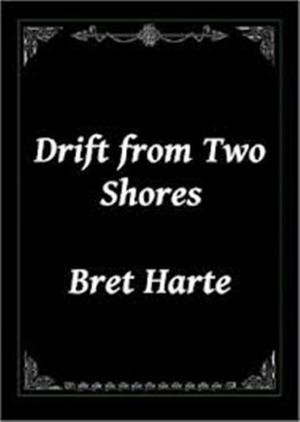| Author: | E J Banfield | ISBN: | 1230000139943 |
| Publisher: | WDS Publishing | Publication: | June 7, 2013 |
| Imprint: | Language: | English |
| Author: | E J Banfield |
| ISBN: | 1230000139943 |
| Publisher: | WDS Publishing |
| Publication: | June 7, 2013 |
| Imprint: | |
| Language: | English |
Does the fact that a weak mortal sought an unprofaned sanctuary--an island removed from the haunts of men--and there dwelt in tranquillity, happiness and security, represent any just occasion for the relation of his experiences--experiences necessarily out of the common? To this proposition it will be for these pages to find answer.
Few men of their own free will seek seclusion, for does not man belong to the social vertebrates, and do not the instincts of the many rule? And when an individual is fain to acknowledge himself a variant from the type, and his characteristics or idiosyncrasies (as you will) to be so marked as to impel him to deem them sound and reasonable; when, after sedate and temperate ponderings upon all the aspects of voluntary exile as affecting his lifetime partner as well as himself, he deliberately puts himself out of communion with his fellows, does the experiment constitute him a messenger? Can there be aught of entertainment or instruction in the message he may fancy himself called upon to deliver? or, is the fancy merely another phase of the tyranny of temperament?
We cannot always trust in ourselves and in the boldest of our illusions. There must be trial. Then, if success be achieved and the illusion becomes real and transcendental, and other things and conditions merely "innutritious phantoms," were it not wise, indeed essential, to tell of it all, so that mayhap the illusions of others may be put to the test?
Not that it is good or becoming that many should attempt the part of the Beachcomber. All cannot play it who would. Few can be indifferent to that which men commonly prize. All are not free to test touchy problems with the acid of experience. Besides, there are not enough thoughtful islands to go round. Only for the few are there ideal or even convenient scenes for those who, while perceiving some of the charms of solitude, are at the same time compelled by circumstances ever and anon to administer to their favourite theories resounding smacks, making them jump to the practical necessities of the case.
Here then I come to a point at which frankness is necessary. In these pages there will be an endeavour to refrain from egotism, and yet how may one who lives a lonesome life on an island and who presumes to write its history evade that duty? My chief desire is to set down in plain language the sobrieties of everyday occurrences--the unpretentious homilies of an unpretentious man--one whose mental bent enabled him to take but a superficial view of most of the large, heavy and important aspects of life, but who has found light in things and subjects homely, slight and casual; who perhaps has queer views on the pursuit of happiness, and who above all has an inordinate passion for freedom and fresh air.
Moreover, these chronicles really have to do with the lives of two people--not youthful enthusiasts, but beings who had arrived at an age when many of the minor romances are of the past. Whosoever looks for the relation of sensational adventures, exciting situations, or even humorous predicaments, will assuredly be disappointed. Possibly there may be something to interest those who wish to learn a few of the details of the foundation of a home in tropical Australia; and to understand the conditions of life here, not as they affect the man of independence who seeks to enlarge his fortune, nor the settler who in the sweat of his face has to eat bread, but as they affect one to whom has been given neither poverty nor riches, and who has proved (to his own satisfaction at least) the wisdom of the sage who wrote--"If you wish to increase a man's happiness seek not to increase his possessions, but to decrease his desires." Success will have been achieved if these pages reveal candour and truthfulness, and if thereby proof is given that in North Queensland one "can draw nearer to nature, and though the advantages of civilisation remain unforfeited, to the happy condition of the simple, uncomplicated man!"
Does the fact that a weak mortal sought an unprofaned sanctuary--an island removed from the haunts of men--and there dwelt in tranquillity, happiness and security, represent any just occasion for the relation of his experiences--experiences necessarily out of the common? To this proposition it will be for these pages to find answer.
Few men of their own free will seek seclusion, for does not man belong to the social vertebrates, and do not the instincts of the many rule? And when an individual is fain to acknowledge himself a variant from the type, and his characteristics or idiosyncrasies (as you will) to be so marked as to impel him to deem them sound and reasonable; when, after sedate and temperate ponderings upon all the aspects of voluntary exile as affecting his lifetime partner as well as himself, he deliberately puts himself out of communion with his fellows, does the experiment constitute him a messenger? Can there be aught of entertainment or instruction in the message he may fancy himself called upon to deliver? or, is the fancy merely another phase of the tyranny of temperament?
We cannot always trust in ourselves and in the boldest of our illusions. There must be trial. Then, if success be achieved and the illusion becomes real and transcendental, and other things and conditions merely "innutritious phantoms," were it not wise, indeed essential, to tell of it all, so that mayhap the illusions of others may be put to the test?
Not that it is good or becoming that many should attempt the part of the Beachcomber. All cannot play it who would. Few can be indifferent to that which men commonly prize. All are not free to test touchy problems with the acid of experience. Besides, there are not enough thoughtful islands to go round. Only for the few are there ideal or even convenient scenes for those who, while perceiving some of the charms of solitude, are at the same time compelled by circumstances ever and anon to administer to their favourite theories resounding smacks, making them jump to the practical necessities of the case.
Here then I come to a point at which frankness is necessary. In these pages there will be an endeavour to refrain from egotism, and yet how may one who lives a lonesome life on an island and who presumes to write its history evade that duty? My chief desire is to set down in plain language the sobrieties of everyday occurrences--the unpretentious homilies of an unpretentious man--one whose mental bent enabled him to take but a superficial view of most of the large, heavy and important aspects of life, but who has found light in things and subjects homely, slight and casual; who perhaps has queer views on the pursuit of happiness, and who above all has an inordinate passion for freedom and fresh air.
Moreover, these chronicles really have to do with the lives of two people--not youthful enthusiasts, but beings who had arrived at an age when many of the minor romances are of the past. Whosoever looks for the relation of sensational adventures, exciting situations, or even humorous predicaments, will assuredly be disappointed. Possibly there may be something to interest those who wish to learn a few of the details of the foundation of a home in tropical Australia; and to understand the conditions of life here, not as they affect the man of independence who seeks to enlarge his fortune, nor the settler who in the sweat of his face has to eat bread, but as they affect one to whom has been given neither poverty nor riches, and who has proved (to his own satisfaction at least) the wisdom of the sage who wrote--"If you wish to increase a man's happiness seek not to increase his possessions, but to decrease his desires." Success will have been achieved if these pages reveal candour and truthfulness, and if thereby proof is given that in North Queensland one "can draw nearer to nature, and though the advantages of civilisation remain unforfeited, to the happy condition of the simple, uncomplicated man!"















